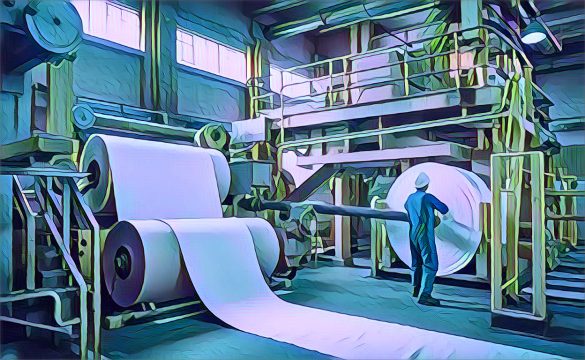The Nigerian paper industry, once a thriving sector capable of meeting domestic demands and contributing significantly to the national economy, is now teetering on the brink of collapse. This dire situation has prompted urgent calls for government intervention to salvage an industry critical to the nation’s sustainable development and economic diversification efforts. The alarm was sounded by Funlayo Bakare-Okeowo, the former chairperson of the Pulp, Paper, and Packaging Group of the Manufacturers Association of Nigeria (MAN) and CEO of FAE Limited, during the company’s 50th-anniversary celebration and the announcement of World Envelopes Day in Lagos.
Bakare-Okeowo highlighted the paradox of Nigeria’s paper industry: despite the country’s abundant resources in both fibrous and non-fibrous pulp and paper materials, the domestic mills remain dormant. This inactivity has forced Nigeria to resort to spending billions of naira annually on paper imports, a situation that not only drains the country’s foreign exchange reserves but also undermines its industrial and economic potential.
The challenges facing the industry are manifold. A significant portion of the operational costs, estimated at 80%, is consumed by diesel expenses due to the unreliable power supply. This situation has escalated production costs, directly impacting the affordability of paper products for end users. The dire state of the industry is exacerbated by the lack of functioning paper mills, leading to an over-reliance on imported raw materials. Bakare-Okeowo lamented that despite Nigeria’s capacity to produce paper domestically, the industry has to import as much as 80% of its raw materials, underscoring the inefficiency and underutilization of available resources.
The implications of this industrial stagnation are far-reaching. Beyond the immediate economic ramifications, the decline of the paper industry represents a missed opportunity for Nigeria to harness a valuable source of foreign exchange. With the global market price for a ton of paper currently standing at $1350, the revitalization of this sector could significantly bolster the nation’s export earnings.
However, the financial landscape for manufacturers remains daunting. The prevailing interest rates for loans, which can exceed 28%, are unsustainable for production and growth. This financial strain hampers the industry’s competitiveness and viability, driving many businesses out of the country in search of more favorable operating environments.
To reverse this downward spiral, Bakare-Okeowo advocates for targeted government interventions, including the provision of special interest rates for manufacturers and the establishment of favorable foreign exchange rates for the importation of raw materials. The call for action is clear: without decisive and supportive measures, the continued viability of Nigeria’s paper industry hangs in the balance.
The current situation demands a comprehensive and strategic approach to rejuvenate this vital sector. This includes not only financial incentives but also investments in infrastructure, technology, and human capital to modernize the mills and improve efficiency. Moreover, fostering a conducive business environment that encourages investment and mitigates operational challenges is imperative for the industry’s recovery and growth.
As stakeholders await the government’s response, the urgency to act cannot be overstated. The potential collapse of the paper industry represents not just a loss of economic opportunity but also a setback in Nigeria’s quest for industrialization and self-sufficiency. The path forward requires a collaborative effort between the government, industry players, and other relevant stakeholders to chart a sustainable course for the revival of this critical sector. The time to act is now, to ensure that the Nigerian paper industry can once again flourish, contributing to the nation’s economic prosperity and environmental sustainability.
Source: The Guardian


